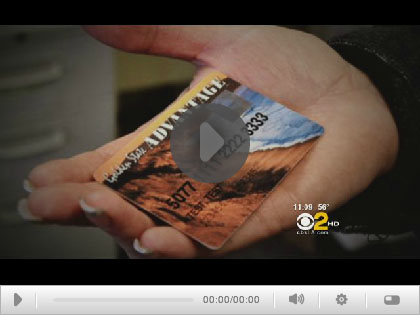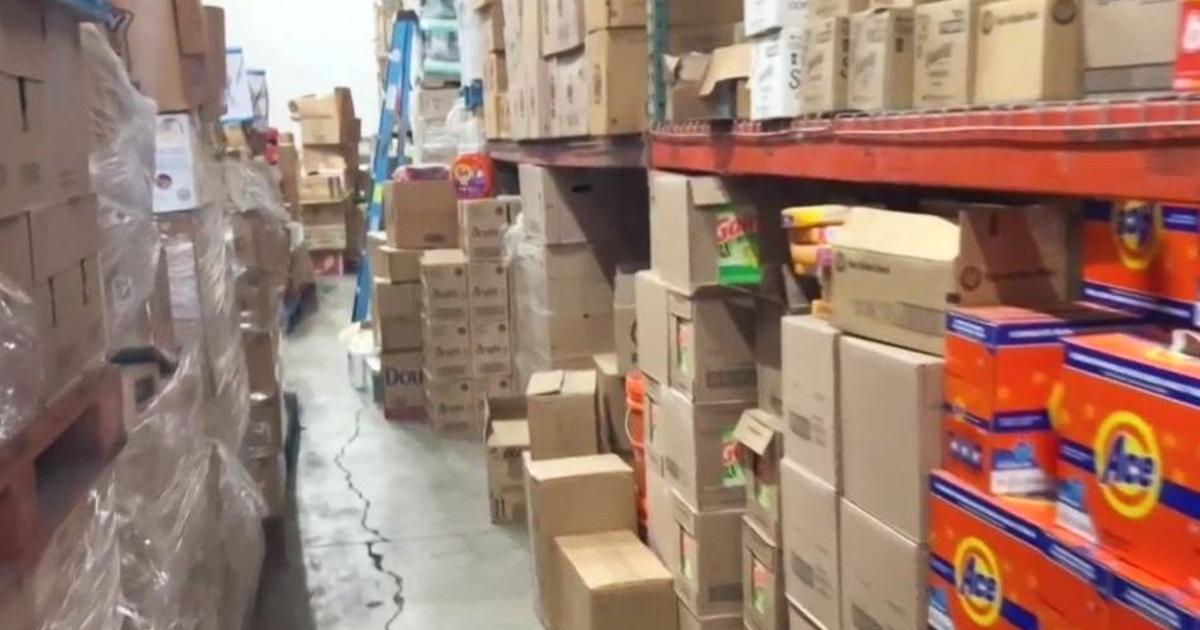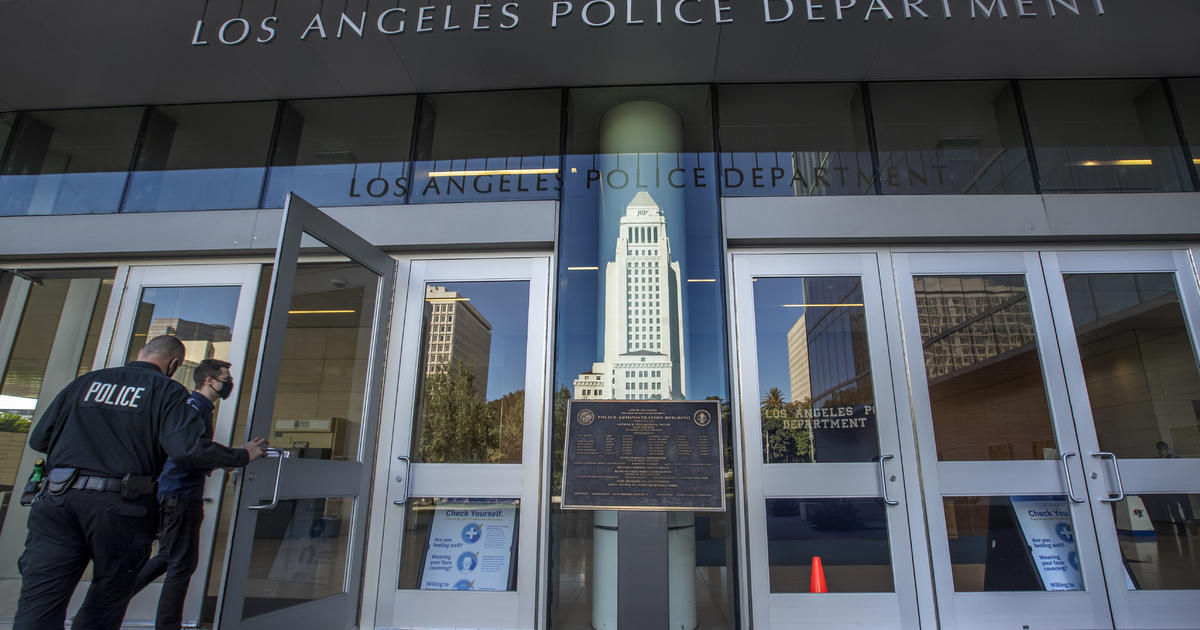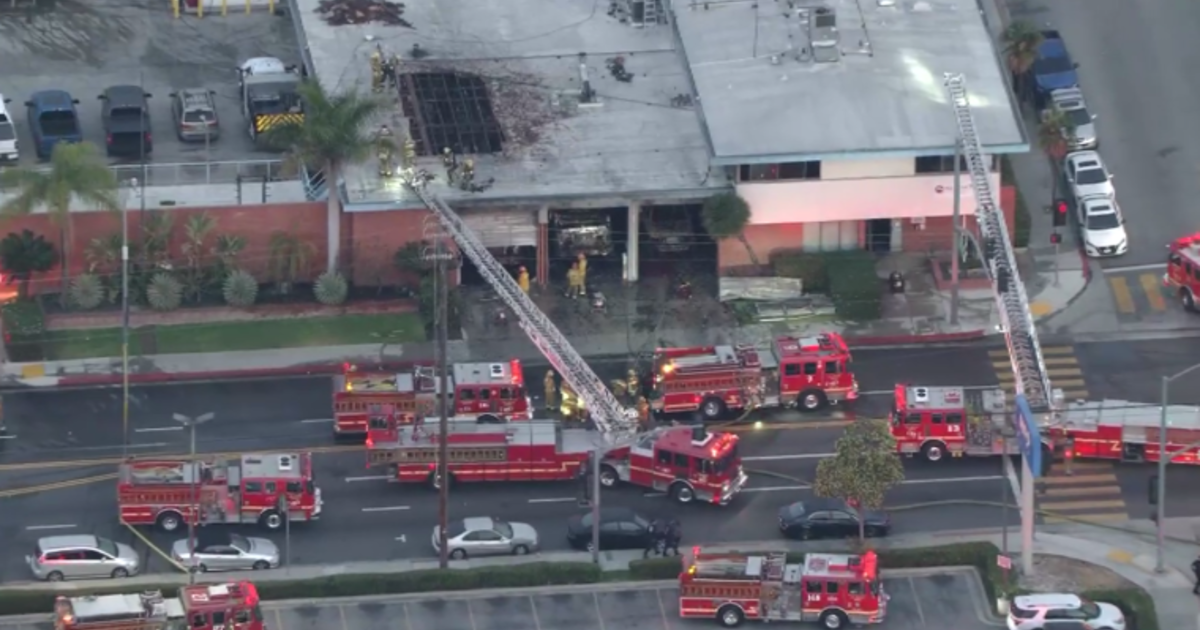Investigation Uncovers People Selling Taxpayer-Funded Food Stamps
LOS ANGELES (CBS) — A CBS2 News hidden-camera investigation uncovered people selling food stamps, cashing in your taxpayer money.
With hidden cameras, we uncovered a black market of people offering to sell their food stamp benefits for cash, which is against the law.
With the cash they could buy whatever they want -- perhaps alcohol, cigarettes or even drugs -- things you can't buy with food stamps, all coming from your money.
Nationwide 46 million Americans are now collecting $75 billion in food-stamp benefits.
In California it is called CalFresh and more than one million people in L.A. County are signed up.
The benefits range from $200 to $1,500 a month and the money comes through Electronic Benefit Transfer Cards (EBTs), which work like debit cards.
EBTs are not supposed to be shared. But we went on Craigslist and found no shortage of people offering to cash in on their food stamps, giving buyers bargains to seal the deal.
We saw ads for people selling $131 worth for $61; $70 for $50; and $200 for $150.
We answered one for someone offering to sell $200 in food stamps for $125.
Our undercover producer met with Matthew, who said he had just enlisted in the Navy, outside of a supermarket in Riverside. There he had more to sell, offering not only his EBT card, but someone else's.
"This one is my friend Steven's. I have his PIN number," he said, adding, "This one is mine. I have my pin number."
"OK, so he has $200 and he has definitely got it on his account," our undercover producer asked?
"Yeah, I just called. It's $200 on his card. I've got $110," Matthew replied.
He wanted to deal.
"I have $310 right here," Matthew said to our producer.
"Three ten?"
"Want to do it for $200," he offered.
"Yeah, $200 would be great," our producer replied.
He said he would go shopping with our undercover producer. She could pick what she wanted and he would pay with his EBT cards -- the supermarket would never know.
We did not go through with it, but tried to talk with Mathew.
"You're taking taxpayer money and you're selling food stamps, right," I asked?
"I don't want to talk about it. I don't want to talk about it," was his response.
He went back inside the store, then tried to avoid our camera by coming out without his shirt on, using it to block our view.
"You're in the Navy and you're ripping off taxpayers?"
He was not the only one; we answered another ad.
"I've done it with friends. It's no big deal," said a man in Redondo Beach, who told us that he had done it before.
"You're selling food stamps. It's illegal," I said.
"I wasn't selling food stamps," he replied, denying it at first.
Then he admitted that he knew a lot of people doing it.
"It's pretty easy, right," I asked?
"I guess so," he said.
A woman also responded to an ad on Craigslist and told our producer that everything was on the up and up.
"Is it OK to do this? Is it legal," our producer asked?
"Yeah, as far as I know. Friends and I have done it for each other," she said.
But it is not.
Liz claimed that she did not know.
"No I didn't. Honest to God, no one ever told me that," she said.
But people like Latoya Pierce, a single mother who collects food stamps, thinks that it hurts everyone.
"It makes me very upset because first of all I'm struggling with my daughter and for people to get money and use it for something else is very wrong," Pierce said.
In L.A. County the Department of Social Services administers benefits and investigates food stamp fraud.
They have about 160 investigators, but, believe it or not, they have only arrested about a dozen people in the past year.
We showed our undercover video to Lupe Luque, who is in charge of fraud.
"We answered the ad on Craigslist and met them at the supermarket. Why can't your people do this," I asked him?
"We are," he replied.
"But you only had a dozen arrests in the past year. It doesn't sound like you're doing a lot about it," I said.
"Not a lot, but we are doing it," Luque responded.
But right now they are still out there.
What we uncovered may show the hidden underground of trading benefits for cash is more widespread and that taxpayers are footing the bill.
USDA Response To Our Investigation:
"USDA has a zero tolerance policy for fraud in the SNAP program and works with states to crack down on abusers who violate the program and misuse taxpayer dollars. In FY 2010, nearly 800,000 investigations were completed to combat fraud and reduce trafficking. These incidents will not be tolerated and the county should use their full authority under the law to make sure that fraud is punished and that bad actors are held accountable."
-Kevin Concannon, USDA Under Secretary for Food, Nutrition and Consumer Services
If you want to report food stamp fraud, visit www.fns.usda.gov/fightingsnapfraud.




